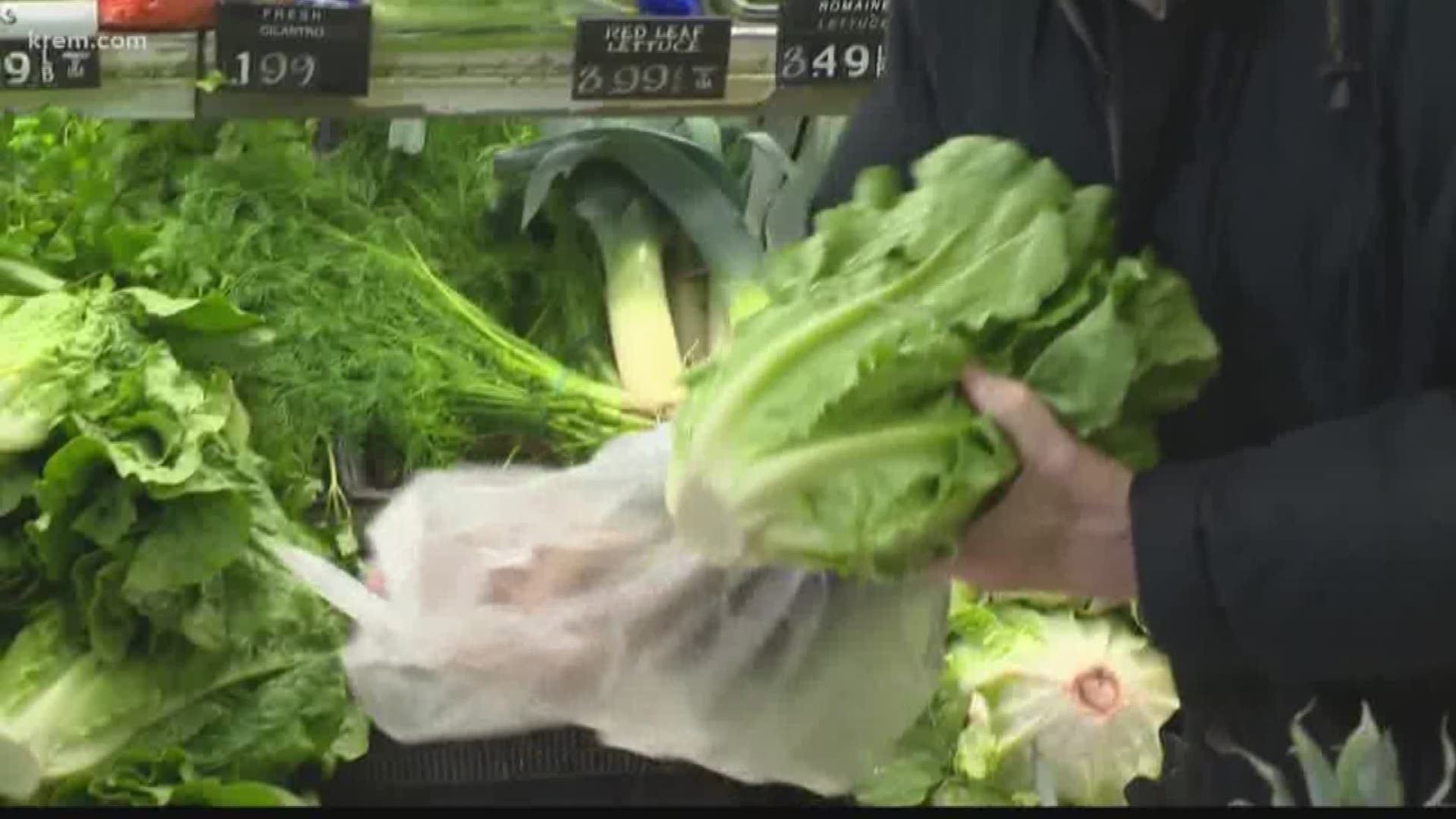COEUR D’ALENE, Idaho—Idaho is being hit hard by an E. Coli outbreak connected to romaine lettuce.
The Centers for Disease Control reported 10 out of the 53 people who had gotten sick from the bacteria were from the gem state.
Idaho Department of Health and Welfare public information officer, Chris Smith said that out of those 10 people who had gotten sick, three had been hospitalized and two had developed kidney issues.
Smith said there was one case confirmed in the Panhandle area.
This strain of E. coli was affecting a variety of ages and not just the elderly and people under five, according to the Idaho Department of Health and Welfare.
The CDC expanded the warning for E. coli from just chopped romaine and salads to all types of romaine lettuce from the Yuma, Arizona growing district Friday. Yuma County is the nation's third-largest vegetable producer.
Don't buy any romaine lettuce from a supermarket unless you or the grocery store can confirm it didn't come from this area. If you have romaine lettuce in your refrigerator, the CDC recommends to throw it away, even if no one has gotten sick. If you are concerned about eating-out, avoid eating romaine at restaurants unless the server can confirm the lettuce is not from the Yuma growing region.
The CDC has not identified a common grower, supplier, distributor or brand from Arizona. So they are advising restaurant owners to check in with their suppliers about the source of their romaine lettuce.
Officials with the Idaho DHW said public health officials were investigating the E. coli outbreak that was linked to at least 16 other states.
E. coli are a diverse family of bacteria that can be found in the environment, in foods and in the intestines of people and animals. Most strains are harmless but some can be serious. Symptoms of this strain include severe stomach cramps, vomiting and diarrhea.
If you are experiencing any E. coli symptoms talk to a health provider immediately. Then report the infection to your local health department. Infections from these bacteria can take three to four days to develop.
Health officials say to follow basic rules for E. coli prevention, including regular hand-washing and avoiding cross-food contamination. A spokesperson for the CDC warns that washing the lettuce does not make it safe to eat because the bacteria can actually get inside the lettuce making it difficult to clean.

